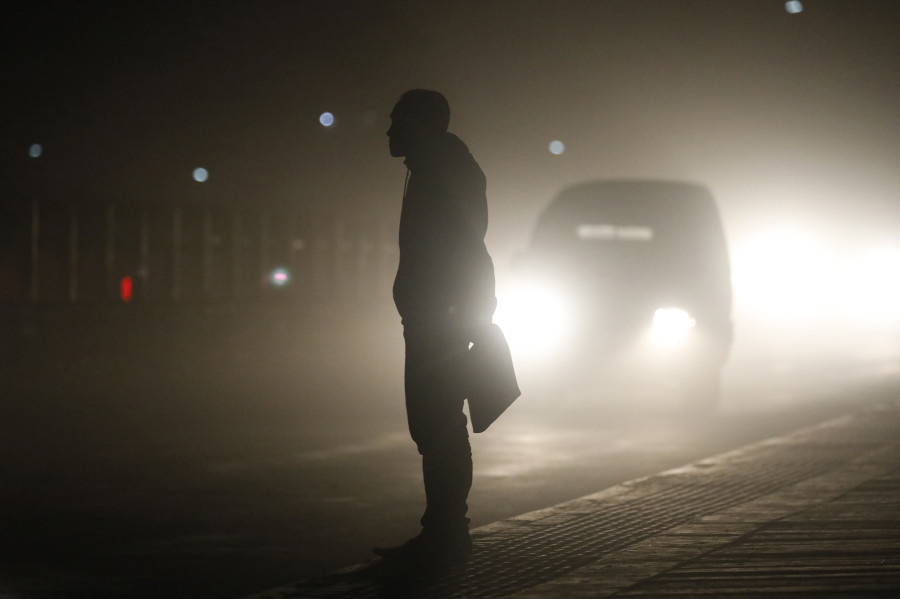Health
As mercury dips, chronic obstructive pulmonary disease cases up, say doctors
Cases of fire hazards also see a significant rise during the winter.
Arjun Poudel
A 45-year-old man from Kalanki visited chest physician Dr Dirgha Singh Bom’s private clinic, on Monday, complaining of coughing and shortness of breath. The man was diagnosed with bronchial asthma.
"He was suffering from bronchial asthma because of long exposure to dust pollution,” Bom told the Post, over the phone. The doctor then prescribed him some medicine and asked him to stay indoors, use masks while going out of the house, and take other precautionary measures to avoid dust pollution.
"The number of such cases has increased by several folds in recent years," Bom added. "I examined four such cases this morning alone."
With a dip in temperature, the number of people suffering from chronic obstructive pulmonary diseases—such as asthma bronchial asthma, allergic rhinitis, coughing, wheezing, shortness of breath, burnt cases and heart ailments have significantly risen, said Bom.
Outdoor pollution in urban areas and indoor pollution in rural areas are the reasons for a spike in the number of respiratory ailments.
Dr Pius Dahal, dean at the National Academy of Medical Sciences, said that bacteria and virus, which cause allergy and chronic obstructive pulmonary diseases flare up as the temperature plummets.
About 10 percent of the total deaths across the country are caused by chronic obstructive pulmonary diseases, according to a recent report released by the Prevalence of Selected Chronic Non-Communicable Diseases in Nepal. Prevalence of chronic obstructive pulmonary diseases has surpassed all non-communicable diseases—such as coronary artery disease, diabetic, and kidney disease—in the country.
The report also shows that over three million people across the country suffer from respiratory problems, but only three percent receive proper treatment. It points at behavioural risk factors, like tobacco use, as the main reason for more and more people suffering from chronic obstructive pulmonary diseases.
"People are also vulnerable to fire accidents in the winter season since most houses build a fire or use a heater to keep warm," said Dahal, from the national academy.
According to Dahal, a study carried out in the past shows that over 40,000 people suffer from burns [minor or severe] every year in Nepal. Among them, about 1,500 to 2000 die because of them.




 9.6°C Kathmandu
9.6°C Kathmandu















